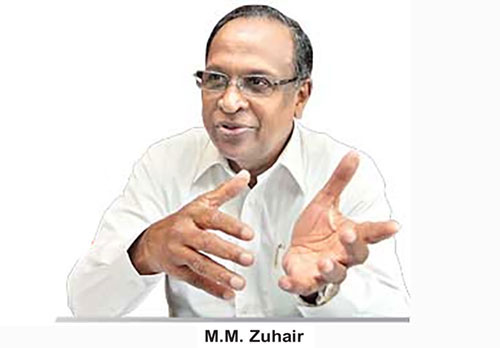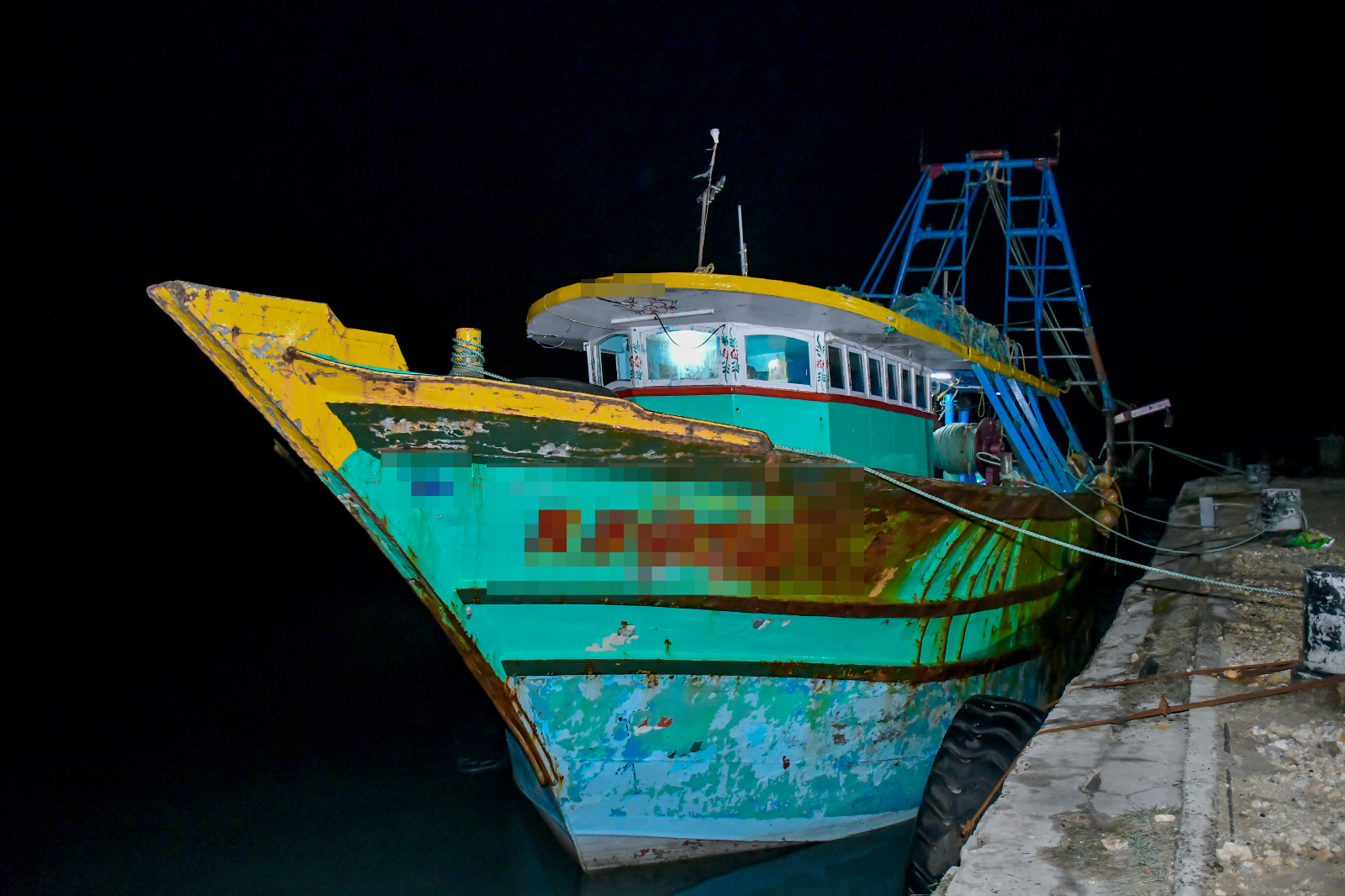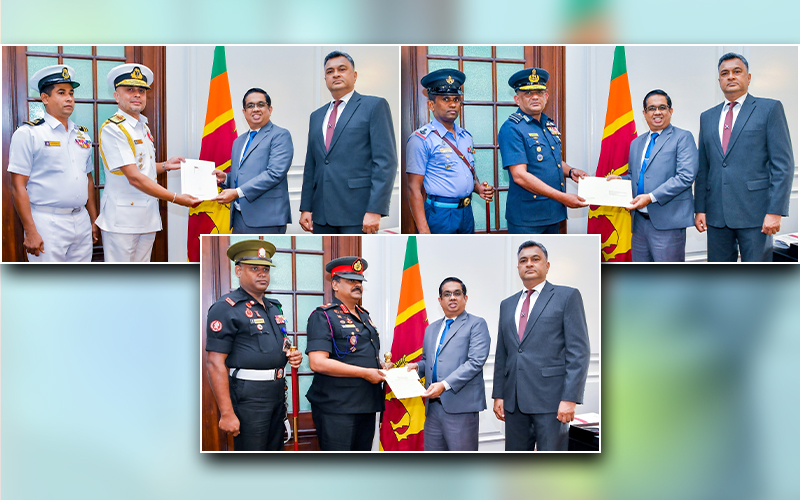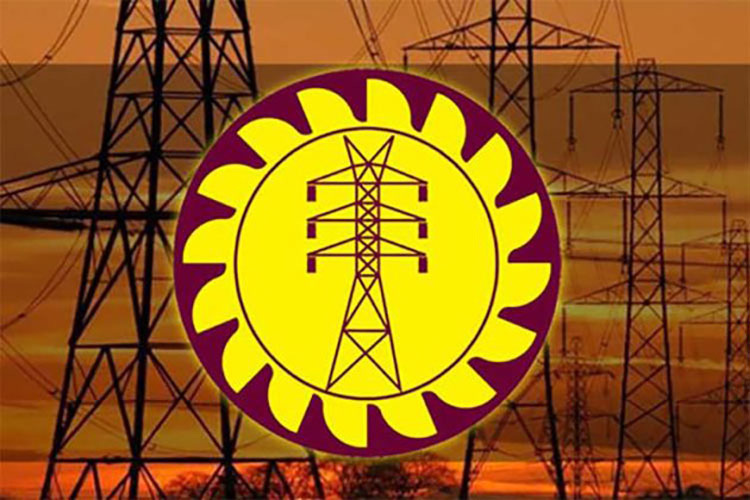News
Ex-lawmaker and one-time Rajapaksa loyalist: Galle Face youth must form an anti-bankruptcy political front

Having displayed discipline, consistency and commitment, over the past nine days and nights, the historically unprecedented, surprisingly undaunted and notably non- violent ‘People’s Struggle’ at Colombo’s ‘Galle Face Green’ by the hitherto ‘unknown youths’ of bankrupt Sri Lanka, rallying in their teeming thousands has reverberated worldwide with a clear public outcry calling upon the Rajapaksa government to quit, without sitting over the destiny of 22 million Sri Lankans any longer, former UPFA MP M.M. Zuhair said in a statement issued yesterday (17). But the forsaken trustees of the country have firmly decided to stay put, ignoring the growing cry to quit the much loved island nation that they are accused of bankrupting, the ex-MP said.
The following is the text of the statement issued by Zuhair, one-time Sri Lanka’s Ambassador to Tehran under Mahinda Rajapaksa’s presidency: “The time has come for the youths to get ready to field an anti-bankruptcy political front at the earliest forthcoming elections and in particular the next General Elections targeting 150 out of the 225 seats in Parliament, which the suffering people will not grudge, given the history of alleged corruption and mismanagement notoriously known on both sides of the parliamentary floor.
In 1954, at the age of 31, Lee Kuan Yew of Singapore, a third generation immigrant from China and a law graduate from Cambridge, England, formed in down town Singapore the ‘People’s Action Party’, gloriously won the next general election and in 1959 became struggling ‘self-governing’ Singapore’s Prime Minister at the age of 35! In 1959, Singapore’s per capita GDP was US $ 400 but by 1990, when Lee Kuan Yew stepped down it grew to US $ 12,200 and by 1999 it grew to US $ 22,000! The Singapore story is the leadership given by a committed Singaporean youth in transforming a land of 640 sq km with no natural resources from third world to first!
The time has come for Sri Lanka, with immense natural resources unlike Singapore, to look for its own Lee Kuan Yew primarily at Galle face Green or at any of the sites of the peoples’ struggle in the country or elsewhere.
The greatest regret for the unknown youths would soon unfold when they realize this week that the parliamentary Opposition missed the best opportunity of moving a Vote of No Confidence on the government during the parliamentary week 5th to 8th April, which followed the Mirihana mid-night demonstrations of 31st March when what appeared to be a collapsing government virtually invited the Opposition to show 113 votes on the floor and to immediately take over the government! It was then much easier for the Opposition to cobble together the 113 votes including from the 42 frightened Pohottuwa Members who moved out of the government camp possibly fearing demonstrations outside their homes!
Meanwhile the Court order barring former Central Bank Governor Nivard Cabraal from leaving the country alerted danger signals. Soon thereafter the Chief Government Whip announced firmly in Parliament that the President will not resign, with ‘resistance’ becoming the better option to ‘abdication’! This was followed by the Prime Minister’s Speech to the Nation that conveyed the message that the government will go on with a newly reconstituted Cabinet. Poorly organized pro-government demonstrations also followed thereafter while Shantha Bandara from the Podujana Peramuna (SLFP) from the Kurunegala district rejoined the government, dealing a blow to the slow moving Opposition.
The new Cabinet is to be sworn in shortly. This, too, would make it more difficult for the Opposition to secure this week the required 113 votes for the Vote of No-Confidence on the government with the 41 MPs feeling more secure now than they did in the aftermath of the post 31st March Mirihana situation.
In the unlikely event of the Opposition pushing through the Vote of No-Confidence in Parliament this week, which is the first constitutional step for ousting an elected government and if they do form the government under a new Prime Minister, the next challenge will be to obtain the signatures of two thirds of the whole number of Members of Parliament, namely 150 signatures to oust the President from office under Article 38(1) (e) read with 38 (2) (b) (i) of the Constitution. Unless the President resigns amidst continuing political uncertainty and his teams’ inability to find urgent solutions to the peoples’ economic woes, the President cannot be constitutionally ousted by Parliament alone but that would require in addition the Supreme Court’s inquiry and report concurring on any of the allegations of violation of Article 38(2) by the President.
The Opposition’s failure to push through the No-Confidence vote during the April 5th to 8th parliamentary sessions , when the “iron was hot” was believed to be due to the Opposition’s lack of confidence in its own ability to solve the crushing economic threats to the country. That would leave the Galle Face youths having to confront higher stress levels over a longer unsustainable period of time.
With schools and offices reopening after the Sinhala and Tamil new year and if the government does not confront the peaceful demonstrators, Galle Face demonstrations can fizzle out within a month’s time. It is in the national interest that the demonstrators do enter into a non-violent political action front and form a new platform sooner than later to sustain the good will they have earned nationally and globally reminding their followers that immediate solutions to the economic bankruptcy will not be forthcoming both from the government as well as from the Opposition.
News
Navy seize an Indian fishing boat poaching in northern waters

During an operation conducted in the dark hours of 01 Jan 26, the Sri Lanka Navy seized an Indian fishing boat and apprehended 11 Indian fishermen while they were poaching in Sri Lankan waters, off Kovilan of Kareinagar, Jaffna.
The Northern Naval Command spotted a group of Indian fishing boats engaging in illegal fishing, trespassing into Sri Lankan waters. In response, naval craft of the Northern Naval Command were deployed to drive away those Indian fishing boats from island waters off Kovilan.
Meanwhile, compliant boarding made by naval personnel resulted in the seizure of one Indian fishing boat and apprehension of 11 Indian fishermen who continued to engage in illegal fishing in Sri Lankan waters.
The seized boat (01) and Indian fishermen (11) were handed over to the Fisheries Inspector of Myliddy, Jaffna for onward legal proceedings.
Latest News
Tri-Forces donate LKR. 372 million, a day’s pay of all ranks to ‘Rebuilding Sri Lanka’ Fund

Members of all ranks from the Sri Lanka Army, Sri Lanka Navy and Sri Lanka Air Force have collectively donated a day’s basic salary to the ‘Rebuilding Sri Lanka’ Fund, which was established to restore livelihoods and rebuild the country following the devastation caused by Cyclone Ditwah.
Accordingly, the total contribution made by the Tri-Forces amounts to LKR. 372,776,918.28.
The cheques representing the financial contributions were handed over on Wednesday (31 December) at the Presidential Secretariat to the Secretary to the President, Dr. Nandika Sanath Kumanayake.
The donations comprised LKR. 250 million from the Commander of the Army, Major General Lasantha Rodrigo; LKR. 73,963,879.71 from the Commander of the Navy, Rear Admiral Kanchana Banagoda and LKR. 48,813,038.97 from the Commander of the Air Force, Air Marshal Vasu Bandu Edirisinghe.
Secretary to the Ministry of Defence, Air Vice Marshal Sampath Thuyacontha, was also present on the occasion.
News
CEB demands 11.57 percent power tariff hike in first quarter

The Ceylon Electricity Board (CEB) has submitted a proposal to the Public Utilities Commission of Sri Lanka (PUCSL) seeking an 11.57 percent increase in electricity tariffs for the first quarter of 2026, citing an estimated revenue shortfall and additional financial pressures, including cyclone-related damages.
According to documents issued by the PUCSL, the proposed tariff revision would apply to electricity consumption from January to March 2026 and includes changes to both energy charges and fixed monthly charges across all consumer categories, including domestic, religious, industrial, commercial and other users.
Under the proposal, domestic electricity consumers would face increases in unit rates as well as fixed monthly charges across all consumption blocks.
The CEB has estimated a deficit of Rs. 13,094 million for the first quarter of 2026, which it says necessitates the proposed 11.57 per cent tariff hike. The utility has noted that any deviation from this estimate whether a surplus or a shortfall will be adjusted through the Bulk Supply Tariff Adjustment (BSTA) mechanism and taken into account in the next tariff revision.
In its submission, the CEB said the proposed revision is aimed at ensuring the financial and operational stability of the power sector and mitigating potential risks to the reliability of electricity supply. The board-approved tariff structure for the first quarter of 2026 has been submitted to the PUCSL for approval and subsequent implementation, as outlined in Annex II of the proposal.
The CEB has also highlighted the financial impact of Cyclone Ditwah, which it said caused extensive damage to electricity infrastructure, with total losses estimated at around Rs. 20 billion. Of this amount, Rs. 7,016.52 million has been attributed to the first quarter of 2026, which the utility said has a direct bearing on electricity tariffs.
The CEB warned that if external funding is not secured to cover the cyclone-related expenditure, the costs incurred would need to be recovered through electricity tariffs in the second-quarter revision of 2026.
Meanwhile, the PUCSL has said that a decision on whether to approve the proposed tariff increase will be made only after following due regulatory procedures and holding discussions on the matter.
By Sujeewa Thathsara ✍️
-

 Sports6 days ago
Sports6 days agoGurusinha’s Boxing Day hundred celebrated in Melbourne
-

 News4 days ago
News4 days agoLeading the Nation’s Connectivity Recovery Amid Unprecedented Challenges
-

 Sports7 days ago
Sports7 days agoTime to close the Dickwella chapter
-

 Features5 days ago
Features5 days agoIt’s all over for Maxi Rozairo
-

 News7 days ago
News7 days agoEnvironmentalists warn Sri Lanka’s ecological safeguards are failing
-

 News5 days ago
News5 days agoDr. Bellana: “I was removed as NHSL Deputy Director for exposing Rs. 900 mn fraud”
-

 News4 days ago
News4 days agoDons on warpath over alleged undue interference in university governance
-

 Opinion3 days ago
Opinion3 days agoRemembering Douglas Devananda on New Year’s Day 2026













